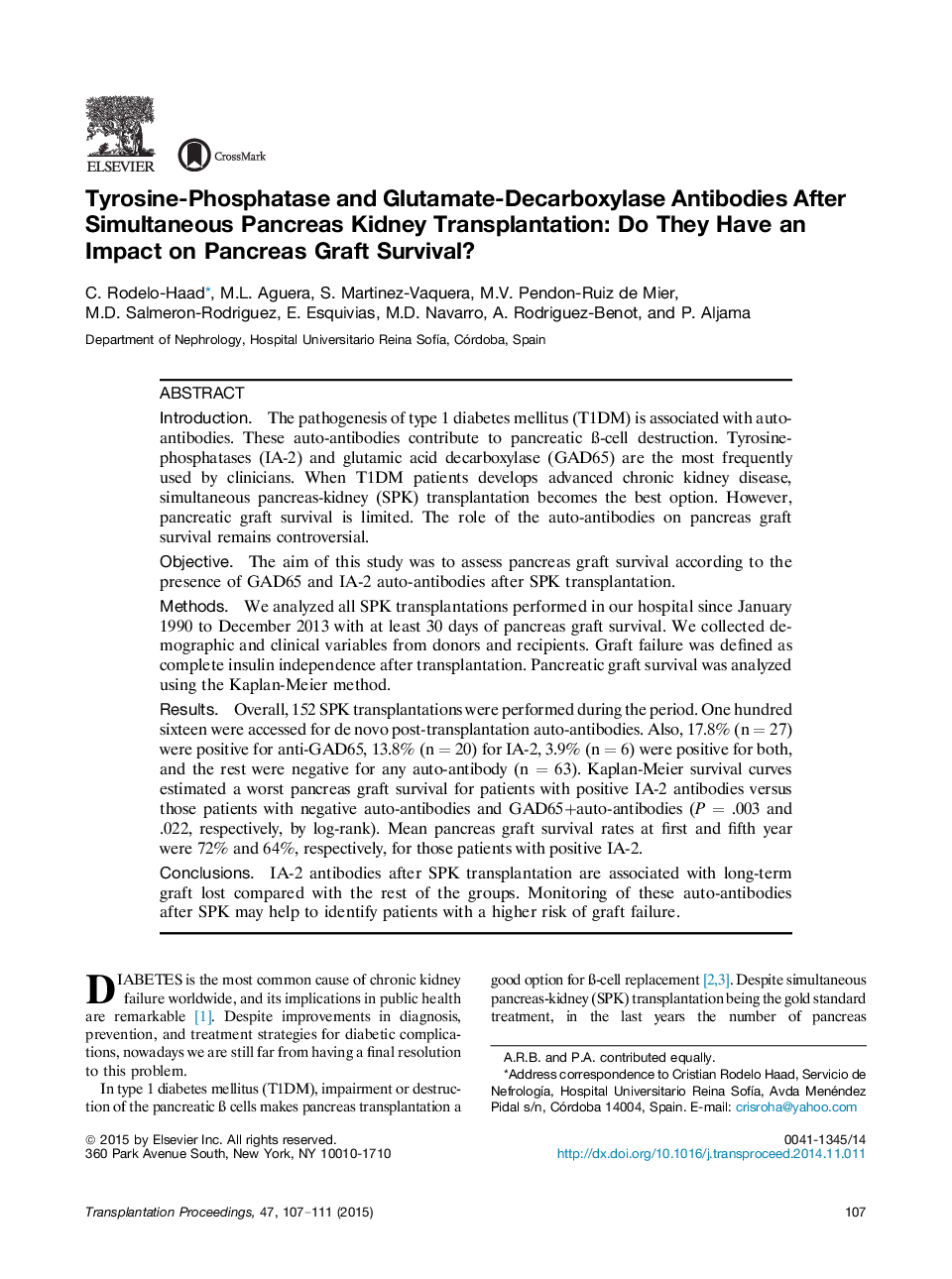| Article ID | Journal | Published Year | Pages | File Type |
|---|---|---|---|---|
| 4256375 | Transplantation Proceedings | 2015 | 5 Pages |
IntroductionThe pathogenesis of type 1 diabetes mellitus (T1DM) is associated with auto-antibodies. These auto-antibodies contribute to pancreatic ß-cell destruction. Tyrosine-phosphatases (IA-2) and glutamic acid decarboxylase (GAD65) are the most frequently used by clinicians. When T1DM patients develops advanced chronic kidney disease, simultaneous pancreas-kidney (SPK) transplantation becomes the best option. However, pancreatic graft survival is limited. The role of the auto-antibodies on pancreas graft survival remains controversial.ObjectiveThe aim of this study was to assess pancreas graft survival according to the presence of GAD65 and IA-2 auto-antibodies after SPK transplantation.MethodsWe analyzed all SPK transplantations performed in our hospital since January 1990 to December 2013 with at least 30 days of pancreas graft survival. We collected demographic and clinical variables from donors and recipients. Graft failure was defined as complete insulin independence after transplantation. Pancreatic graft survival was analyzed using the Kaplan-Meier method.ResultsOverall, 152 SPK transplantations were performed during the period. One hundred sixteen were accessed for de novo post-transplantation auto-antibodies. Also, 17.8% (n = 27) were positive for anti-GAD65, 13.8% (n = 20) for IA-2, 3.9% (n = 6) were positive for both, and the rest were negative for any auto-antibody (n = 63). Kaplan-Meier survival curves estimated a worst pancreas graft survival for patients with positive IA-2 antibodies versus those patients with negative auto-antibodies and GAD65+auto-antibodies (P = .003 and .022, respectively, by log-rank). Mean pancreas graft survival rates at first and fifth year were 72% and 64%, respectively, for those patients with positive IA-2.ConclusionsIA-2 antibodies after SPK transplantation are associated with long-term graft lost compared with the rest of the groups. Monitoring of these auto-antibodies after SPK may help to identify patients with a higher risk of graft failure.
